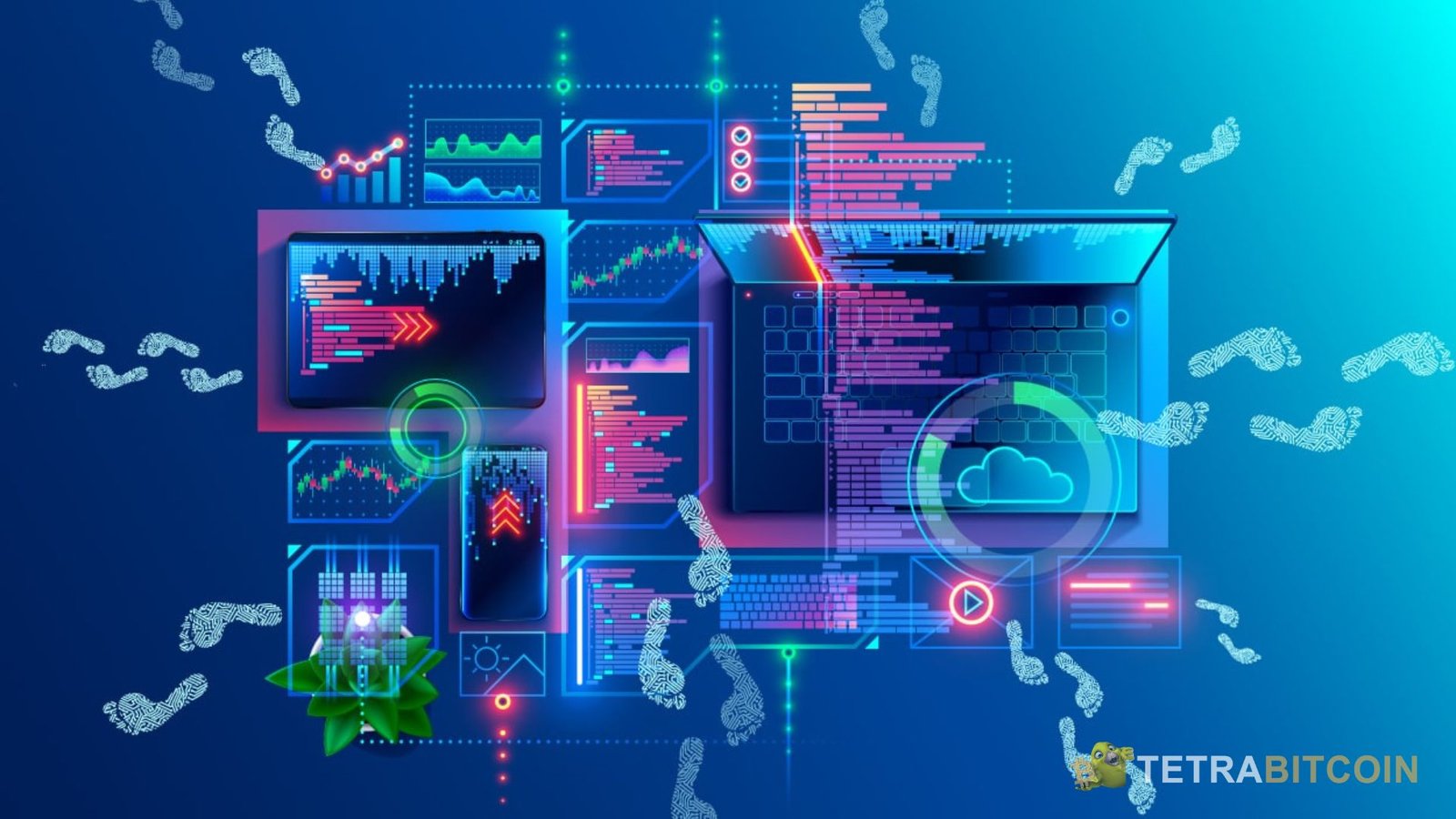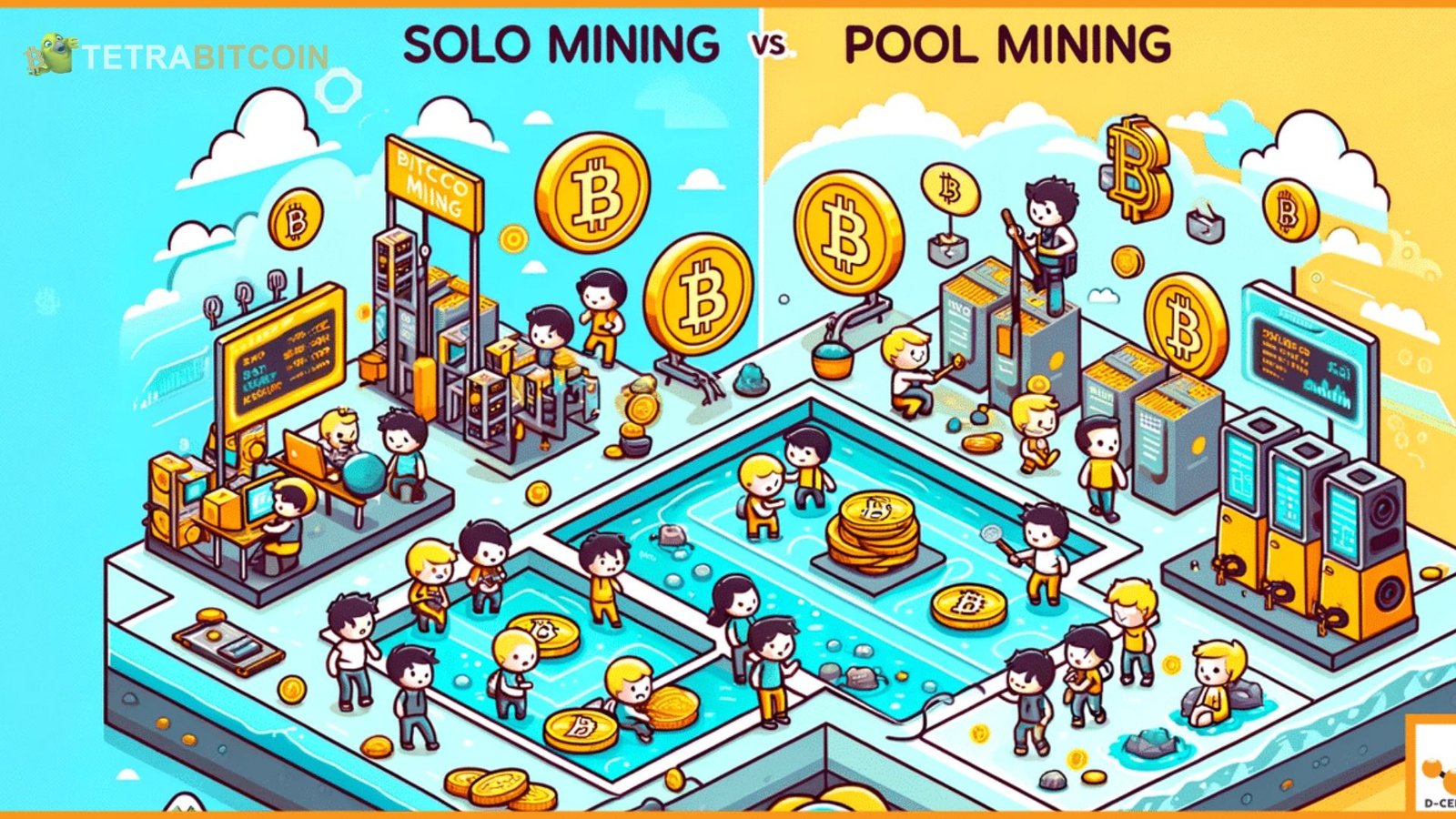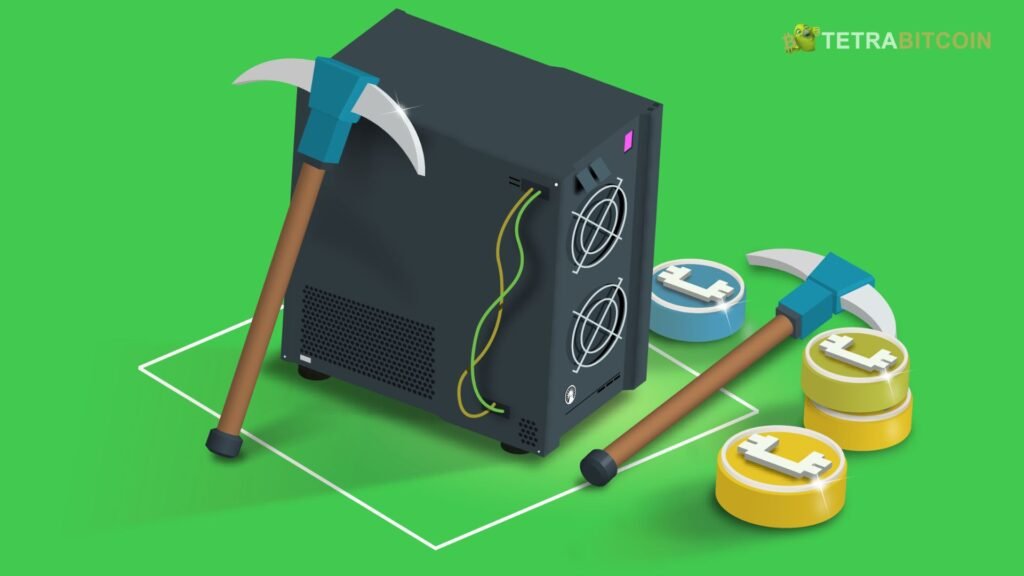Bitcoin mining is crucial in the ever-changing realm of cryptocurrencies. If people fully grasp the complexities of this process, they can learn more about mining Bitcoin and joining the growing Bitcoin network. This article will explore the basics of Bitcoin mining, including what it is, why it’s important, and how to mine Bitcoins.
Mining is the process of creating new bitcoins and validating blockchain transactions. Miners validate transactions and maintain the integrity of the Bitcoin network by solving complex mathematical problems using specialized mining equipment. Competing miners keep the distributed ledger technology of cryptocurrencies alive by offering their processing power.
Definition of Bitcoin Mining
The term “mining” refers to creating new Bitcoins while verifying existing ones and adding them to the blockchain. Solving cryptographic riddles using hashing algorithms is called proof of work, and it’s what allows miners to accomplish this. When miners solve these problems, they generate a new block and are rewarded with Bitcoin.
Importance of Bitcoin Mining in the Cryptocurrency Ecosystem
Bitcoin mining is essential to keeping the Bitcoin ecosystem secure and running smoothly. It checks and records all transactions precisely to avoid fraud and double spending. As the mining difficulty scales with the network’s total processing power, mining helps control the supply of Bitcoin by keeping the mining rate sustainable.
How Bitcoin Mining Works
Bitcoin mining is based on rules that miners must adhere to to verify transactions and keep the network secure. The goal of each miner is to discover a hash value that satisfies the difficulty level set by the network. An incentive for the energy-intensive mining process is the payment miners receive when they successfully mine a new block: a set number of bitcoins.
The Mining Process Explained

Miners must engage in a multi-stage process to successfully mine bitcoin. You must understand this method if you want to start mining bitcoins or join a mining pool. Detailed explanations of mining endeavors’ processes, algorithms, and outcomes are provided in the following sections.
Steps Involved in the Bitcoin Mining Process
To start mining bitcoins, miners must first connect to the bitcoin network and set up their mining software. The next step is to maximize their chances of success by gathering the requisite computer power, which is typically done through mining farms or pools. Once they are set up, miners compete to solve cryptographic riddles needed to secure new blocks and validate transactions.
Mining Algorithms and Their Role
Bitcoin mining relies on mining algorithms, which govern the validation of transactions and the creation of blocks. The hashing algorithm SHA-256 is most often used for cryptographic hashing of transaction data. This procedure guarantees that the chain is secure and unchangeable by connecting each block to the one before it. How efficient these algorithms are affects how tough mining is and how successful mining operations are.
Understanding Mining Rewards
Bitcoin miners are incentivized to do their computational work because they receive rewards for their efforts. The current block reward is 3.125 bitcoins, half of the original 50 bitcoins. The prize is divided in half every four years. These incentives not only encourage miners but also control the supply of bitcoin and impact its market value.
Starting Your Own Bitcoin Mining
Starting in the Bitcoin mining industry can be thrilling and demanding. To start mining bitcoins successfully, you must know what you’re doing. To prepare for the energy-intensive tasks, you must study the hardware, software, and Bitcoin mining process. Your mining activities will be well-grounded if you familiarize yourself with these components.
What You Need to Mine Bitcoin
To mine bitcoins, you’ll need specialized gear and software to manage the mining processing power requirements. Essential parts include dependable mining software that can connect to the Bitcoin network and ASIC mining rigs designed specifically for Bitcoin mining. Mining activities require a lot of computational power and energy to validate transactions and create new bitcoins, so a reliable internet connection and sufficient power supply are also essential.
Choosing the Right Mining Hardware
To mine bitcoins successfully, you must use the right mining hardware. The enhanced hashing capabilities of ASIC miners make them a top recommendation above general-purpose gear. Compare and contrast different models according to their cost, energy efficiency, and hashing power. Investing in high-quality mining equipment increases your odds of effectively mining new blocks and earning bitcoin rewards.
Setting Up Your Mining Operation
It takes meticulous preparation and execution to set up your mining enterprise. Because mining is a very hot and energy-intensive activity, you should start by finding a place with plenty of room and good cooling systems. After that, get your hardware set up to connect to the Bitcoin network and install any mining software that may be required. Make sure everything is in its proper place to maximize your mining power and the efficiency of creating new bitcoins.
Mining Pools vs. Solo Mining

You may ask if it’s better to mine bitcoins alone or join a mining pool as you weigh your options. To choose the optimal solution for your situation, it is crucial to understand the distinctions between these methods. Joining a mining pool can make it easier to produce Bitcoin rewards regularly and give you greater control over your mining activities. Still, solo mining gives you full control over your mining operations.
What is a Mining Pool?
When Bitcoin miners join forces in a “mining pool,” they pool their resources to boost their odds of finding new blocks. When miners combine their resources, they can split the rewards according to the hash power they each supply. Instead of depending entirely on the unpredictability of solo mining, this method reduces the volatility in mining earnings and enables participants to obtain smaller, more frequent payouts.
Benefits of Joining a Mining Pool
Joining a mining pool has several benefits, particularly for miners unfamiliar with the Bitcoin mining ecosystem. The main advantage is the decreased likelihood of payment variation because miners can count on a consistent income from their pool contributions. Mining pools frequently include useful resources like mining software and support to further assist members in optimizing their mining operations and maximizing their Bitcoin returns.
Comparison of Pool Mining and Solo Mining
Several considerations could impact your choice between pool mining and solo mining. When mining a block solo, you may get more money, but it takes a lot of computer power, and sometimes, there are extended stretches when you don’t get anything. Pool mining, conversely, guarantees more continuous rewards, which would be more attractive to people who want to make a living off of Bitcoin mining.
Legal Considerations for Bitcoin Mining
Is Bitcoin Mining Legal?
When deciding between mining in a pool or going it alone, there are many factors to consider. Solo block mining can potentially yield higher rewards, but it’s resource-intensive and can go on for long periods without payouts. In contrast, pool mining ensures constant benefits, making it more appealing to individuals who aim to earn a livelihood through Bitcoin mining.
Regulations Surrounding Bitcoin Mining
Miners must follow many rules while dealing with bitcoin, mostly regarding taxation, the environment, and the legality of mining operations. Particularly in mining-heavy regions, governments may impose energy usage regulations. To limit their harmful effects on the environment, miners must follow these rules and regulations, which may require them to declare their profits or use a certain amount of energy.
Environmental Impact and Legal Issues
The effects of Bitcoin mining on the environment have raised significant ethical and legal concerns. Mining generates higher than average carbon emissions because it uses a lot of energy and frequently uses fossil fuels. As a result, several governments have passed laws to control mining and encourage greener energy sources. Therefore, it is in everyone’s best interest for miners to switch to greener methods; doing so will assist the industry in gaining public trust and ensure compliance with regulations.
The Future of Bitcoin Mining

Trends in Bitcoin Mining Technology
Bitcoin mining technology adapts to the changing cryptocurrency market. One current trend is more efficient application-specific integrated circuit (ASIC) mining hardware while using renewable energy sources to power mining operations is another. Software developments allow miners to optimize their operations and raise their total Bitcoin mining payouts. At the same time, innovations like liquid cooling systems and better algorithms make mining more sustainable and cost-effective.
Challenges Facing Bitcoin Miners
Rising mining difficulty, unpredictable Bitcoin values, and regulatory constraints are just a few obstacles that Bitcoin miners must overcome. Validating transactions and earning rewards becomes increasingly difficult as the number of miners on the Bitcoin network increases. Further complicating matters is the periodic halving of the block reward, which forces miners to optimize their mining operations and constantly adjust their techniques to stay financially viable in a more competitive environment.
Also Read: Marathon’s Bitcoin Mining Project to Heat Full Finnish Town
The Role of Miners in the Future of Cryptocurrency
By verifying transactions and protecting the blockchain, miners will remain an integral part of the Bitcoin network and the cryptocurrency ecosystem as a whole. As the industry develops, miners will become increasingly important to keep decentralized finance running and to back up new blockchain solutions. The future of Bitcoin mining and the cryptocurrency sector as a whole will be greatly affected by its capacity to adjust to new regulations and technological developments.

